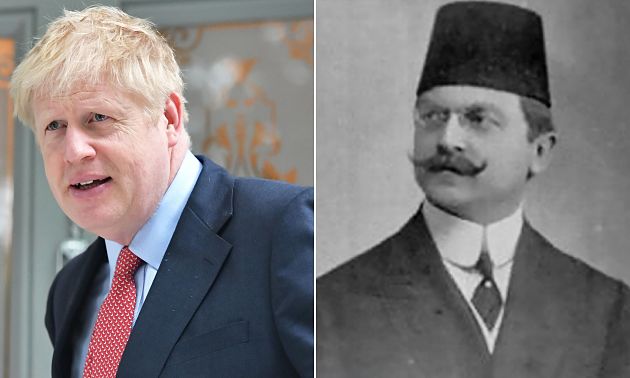One of the few countries where the election of Boris Johnson as the new Prime Minister of the United Kingdom was greeted with enthusiasm was Turkey. The reason for this excitement is humanly understandable – Johnson’s Turkish roots, which he does not hide. Yes, not just any roots, but quite prominent ones – Johnson is the great-grandson of the famous Ottoman public figure of the early 20th century, Ali Kemal. The Turkish media, from the official TRT to the opposition newspaper Sozcu, have been telling Turks and the world about these roots and this figure under the headline “The great-grandson of an Ottoman becomes Prime Minister of the United Kingdom.
It is worth noting that Johnson’s great-grandfather is a figure as outstanding as he is controversial for all major parts of the Turkish mainstream – the “Islamist,” the ultra-Kemalist, and the ultra-nationalist. The first group has reason to dislike him as a dissident against the rule of Sultan Abdul Hamid II, while the ultranationalists see him as a fierce and public critic of the brutal measures against the Armenian population that he blamed on the Young Turks. Kemalists, on the other hand, see him as someone who opposed Mustafa Kemal’s national-republican project and advocated the preservation of the sultanate under the de facto protectorate of England, with whom he had many ties-from his first wife, an Englishwoman and Johnson’s great-grandmother, to his regular residence in the country during periods of exile and disgrace.
In the end, Ali Kemal was beaten to death on his way to a tribunal organized by Mustafa Kemal’s comrades to sentence him to death for betraying his country. Strictly speaking, Johnson’s ancestor should be seen by modern Turkish historical consciousness in a similar way as General Vlasov is perceived by the majority of contemporary Russians. Nevertheless, we see in this example how the fact of Johnson’s Turkish origin becomes a matter of pride for Turks of various persuasions, while the aspects of his biography that might tarnish it are simply forgotten.
Will Johnson’s distant Turkish roots help to improve Turkish-British relations? To hope so would be naive, not because a Turkish great-grandfather is, as they say in Russia, “a seventh water on cabbage soup,” but because European history is full of examples when rulers of states feuded and waged war despite their own ethnic origins and kinship, as was the case in World War I. Johnson is not even an absolute monarch, but only a replaceable democratically elected leader who will be guided by the national interests of his country as he understands them and as he has done so far.
On the other hand, despite Johnson’s past mischievous prank as Mayor of London against Turkish leader Recep Tayyip Erdogan, since assuming the position of Foreign Secretary of the United Kingdom, he has set a course to establish the most productive relations both with his great-grandfather’s homeland and with other Muslim countries in the region. It is also worth noting that Johnson defended Qatar during the harassment directed against it and has been a consistent advocate of removing Assad and holding him accountable for the war crimes he has committed.
All of this has little to do with his distant Ottoman roots, but in the end, why not consider them a pleasant bonus for Britain’s relations with countries associated with Ottoman civilization under his leadership?

